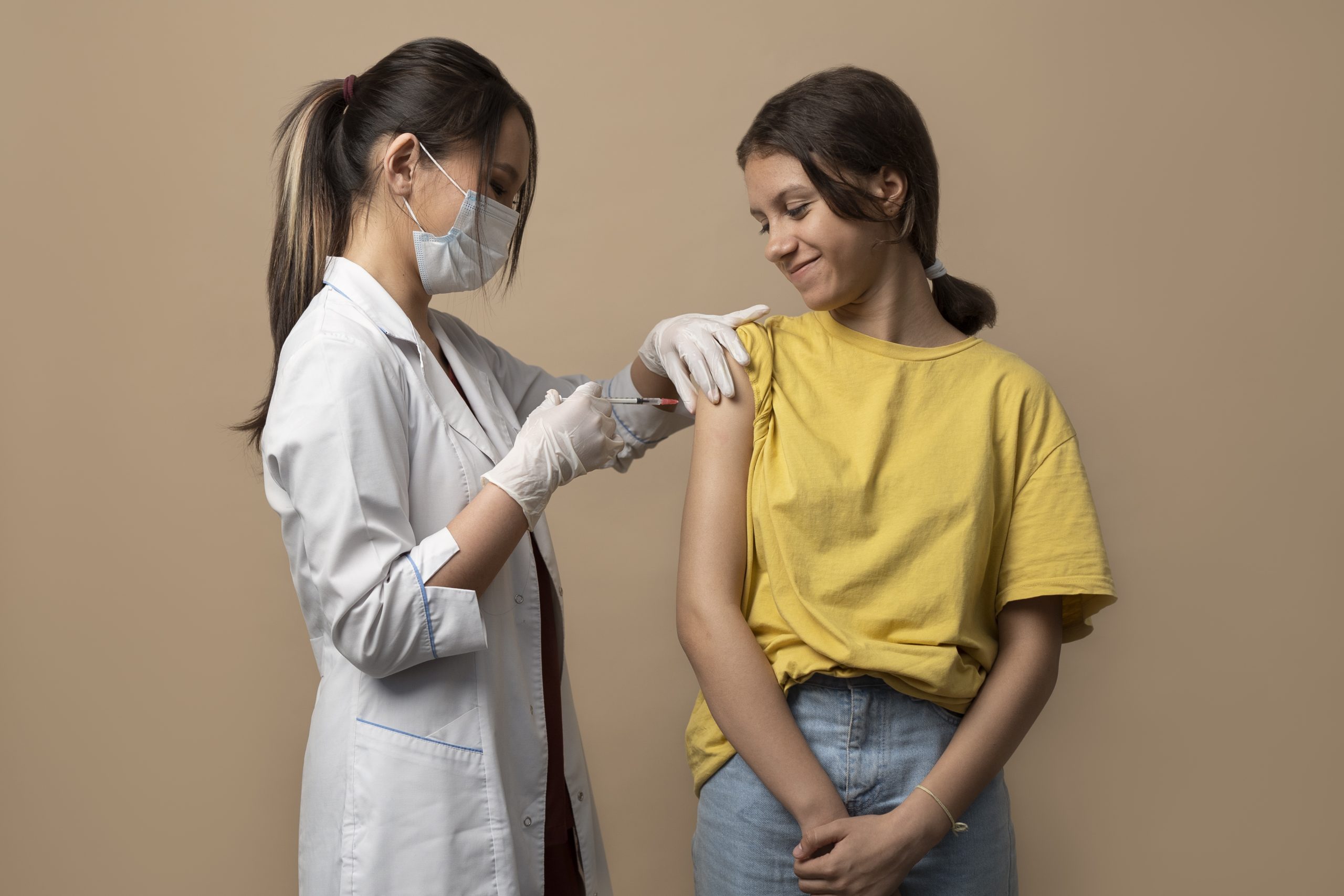Monday to Friday – 5pm to 8pm | Saturday – 10am to 1pm | Sunday – Closed
A-289, Sector-43, Noida | +91 98106 40531

Dr Puja Jain Dewan
sr gynecologist | obstetrician | Laparoscopic Gyne Surgeon
MBBS | MD | DGO | FMAS | FICOG
HPV Vaccine in India : Everything You Need to Know

Human Papillomavirus (HPV) is a prevalent sexually transmitted infection, with certain strains leading to cervical cancer—a significant health concern in India. The introduction and promotion of HPV vaccination have become pivotal in combating this disease. This article provides a comprehensive overview of the HPV vaccine in India, covering its importance, availability, cost, eligibility, and recent developments.
Understanding HPV and Its Link to Cervical Cancer
HPV encompasses a group of over 200 related viruses, some of which are high-risk types associated with various cancers, notably cervical cancer. In India, approximately 87.8% to 96.7% of cervical cancer patients have an HPV infection, underscoring the virus’s significant role in the disease’s prevalence.
Importance of the HPV Vaccine
The HPV vaccine is designed to protect against the high-risk strains of the virus that are most commonly linked to cervical cancer. By immunizing individuals before they are exposed to the virus, the vaccine significantly reduces the risk of developing HPV-related cancers later in life. Given the high burden of cervical cancer in India, widespread vaccination can play a crucial role in reducing incidence and mortality rates.
HPV Vaccines Available in India
Several HPV vaccines have been approved and are available in India:
Gardasil (Quadrivalent Vaccine): Licensed for use since 2008, Gardasil targets four HPV strains—6, 11, 16, and 18. HPV-16 and HPV-18 account for about 80-85% of all cervical cancers in India, while HPV-6 and HPV-11 cause approximately 90% of genital warts.
Cervarix (Bivalent Vaccine): This vaccine protects against HPV types 16 and 18, responsible for around 70% of cervical cancers. It’s typically recommended for females aged 9-14 years in a two-dose schedule.
Cervavac (Indigenous Vaccine): Developed by the Serum Institute of India, Cervavac is the first Indian-made HPV vaccine. Approved for girls and boys aged between 9 and 26, it is priced relatively lower than its international counterparts, with a two-dose vial available for Rs 4,000, making it Rs 2,000 per dose.
Eligibility and Vaccination Schedule
The HPV vaccine is recommended for:
Adolescent Girls and Boys: The ideal age for vaccination is between 9 to 14 years, before the onset of sexual activity, to ensure maximum efficacy.
Young Adults: Individuals up to the age of 26 can also receive the vaccine, though the benefit decreases with age and potential prior exposure to HPV.
The vaccination schedule typically involves:
Two-Dose Schedule: For individuals aged 9-14 years, two doses are administered six months apart.
Three-Dose Schedule: For those aged 15-26 years, three doses are given over six months (at 0, 1-2, and 6 months).
Cost of HPV Vaccination in India
The cost of HPV vaccines varies:
Gardasil: Priced between Rs 2,000 to Rs 4,000 per dose.
Cervavac: At Rs 2,000 per dose, it offers a more affordable option compared to international vaccines.
While the cost may seem substantial, it is a valuable investment considering the potential expenses and health implications associated with cervical cancer treatment.
Government Initiatives and Recent Developments
Recognizing the critical role of HPV vaccination in preventing cervical cancer, the Indian government has taken significant steps:
Budget 2024 Announcement: The Finance Minister announced plans to encourage vaccination for girls aged 9 to 14 years for the prevention of cervical cancer, highlighting the government’s commitment to women’s health.
Inclusion in Universal Immunization Programme (UIP): The National Technical Advisory Group on Immunization (NTAGI) recommended introducing the HPV vaccine into the UIP, proposing a one-time catch-up program for adolescent girls aged 9-14 years, followed by routine introduction at nine years of age.
State-Level Initiatives: States like Delhi and Punjab have initiated HPV vaccination programs targeting adolescent girls, achieving commendable coverage rates.
Addressing Challenges and the Way Forward
Despite the availability of vaccines and government initiatives, several challenges hinder widespread HPV vaccination in India:
Awareness: There is a lack of awareness about HPV and its link to cervical cancer, leading to low vaccine uptake.
Cultural Barriers: Societal taboos surrounding discussions of sexually transmitted infections can impede open conversations about vaccination.
Accessibility: Ensuring vaccine availability in rural and remote areas remains a logistical challenge.
To overcome these challenges, a multi-faceted approach is essential:
Educational Campaigns: Raising awareness through schools, community programs, and media to educate the public about HPV and the benefits of vaccination.
Healthcare Provider Training: Equipping healthcare professionals with the knowledge and tools to recommend and administer the vaccine effectively.
Policy Implementation: Integrating the HPV vaccine into national immunization schedules and ensuring consistent supply chains.
Conclusion
The HPV vaccine represents a significant advancement in the prevention of cervical cancer, a leading cause of cancer-related deaths among women in India.
Important Links
Pregnancy Care
Gynecology Treatments
laproscopic surgeries
Dewan's Ortho Gyne Clinic
Made with ♥ by Grey Matter Ink
